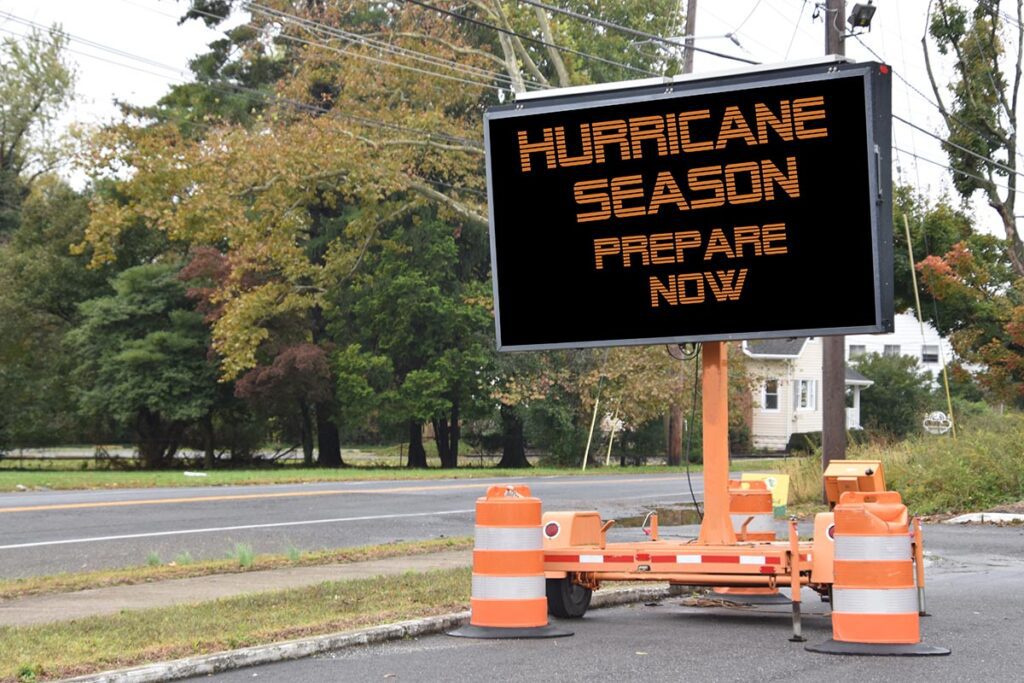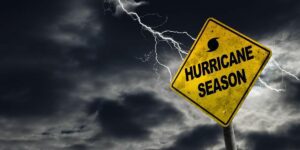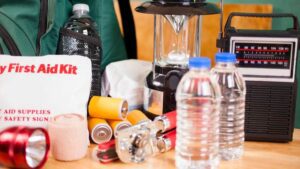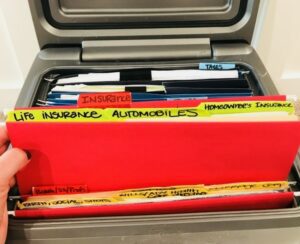
Hurricane season is a bit late this year, but it will most likely be busier than normal. According to the National Oceanic and Atmospheric Administration. NOAA's Climate Prediction Center estimates a 65% chance of an "above-normal" hurricane season in the Atlantic.

The hurricane season for the Atlantic and Gulf coasts is June 1 to Nov. 30. Generally, there is an average of about 12 named storms per year, between hurricanes and tropical storms.
During a hurricane watch, it is important to prepare your home and have an evacuation plan in case a warning is issued. During a warning, carefully follow the directions of officials, and immediately leave the area if they advise it.
Below are a few steps you can take to prepare for hurricane season and help protect your family and home.
Create an Emergency Plan
The most important step in preparing for hurricane season is creating your emergency plan. First, determine how your family will communicate during a hurricane and how you'll receive emergency alerts ahead of time. It is important to know where you’ll take shelter in your home and in your local area if you stay. Learn the locations of local shelters. If evacuation is required, make sure you know the evacuation route you'll take. If you are sheltering in place make sure you know how to turn off the gas, electricity, and water
Remember, your plan should also include any special measures necessary to care for children, pets or family members with mobility issues. Additionally, make a plan for any household members who require special medication or medical equipment.
Before hurricane season, make sure everyone in the family understands the plan, including children.
Prepare an emergency kit
The last thing you want to do when a hurricane is approaching is rush around to find everything you may need for the coming days. Instead, have an emergency kit on hand or a go bag ready and packed. Your emergency kit can include:
 Pet food
Pet foodSecuring Your Home
You can take measures to secure your home against potential hurricanes and high winds. A few steps you can take include:

Keep important documents somewhere safe
Make sure that every important document is in a waterproof and fireproof safe in your home.
Next, make sure that each document has a digital copy so that if your home is destroyed and your safe can't be recovered, you still have copies of everything.
Important documents to keep safe include: 
Check your insurance policies
Before hurricane season each year is a good time to double-check your insurance policies and make sure you're fully covered in case there's an incident.
First, you should confirm that your current coverage is enough to rebuild your home and replace all your personal property in the event of a personal loss. You should also make sure you have the types of coverage specifically needed for hurricanes: flood insurance and windstorm insurance.
If you live in an area prone to hurricanes, make sure you have the necessary coverage. Understand your deductible and keep enough in a savings account to cover it in case there's a loss.
Keep an inventory of your belongings
If you live in an area prone to hurricanes and are at risk of your home being damaged, be sure to keep a running inventory of your personal property in case you need to file a homeowners insurance claim. You will have to provide an inventory of items that were destroyed. The quicker you can provide this information to the insurance company, the quicker it can settle your claim and you can start to recover.
To create your inventory, simply go room by room and add each item to a spreadsheet. Include the value of each item in case you must file a claim. For valuable items, you can also include photos or purchase receipts. Be sure to store your inventory digitally. You should also update it each year before hurricane season.
Power Outages
In the event a storm should leave you without power, there are a few things to consider and help you be ready and stay safe outside of your normal hurricane preparedness.
Hurricane Preparation for Driving:
Do not drive in rainy weather and high winds if you don’t have to. However, if you need to get on the road to evacuate you want to make sure you and your vehicle are ready.
